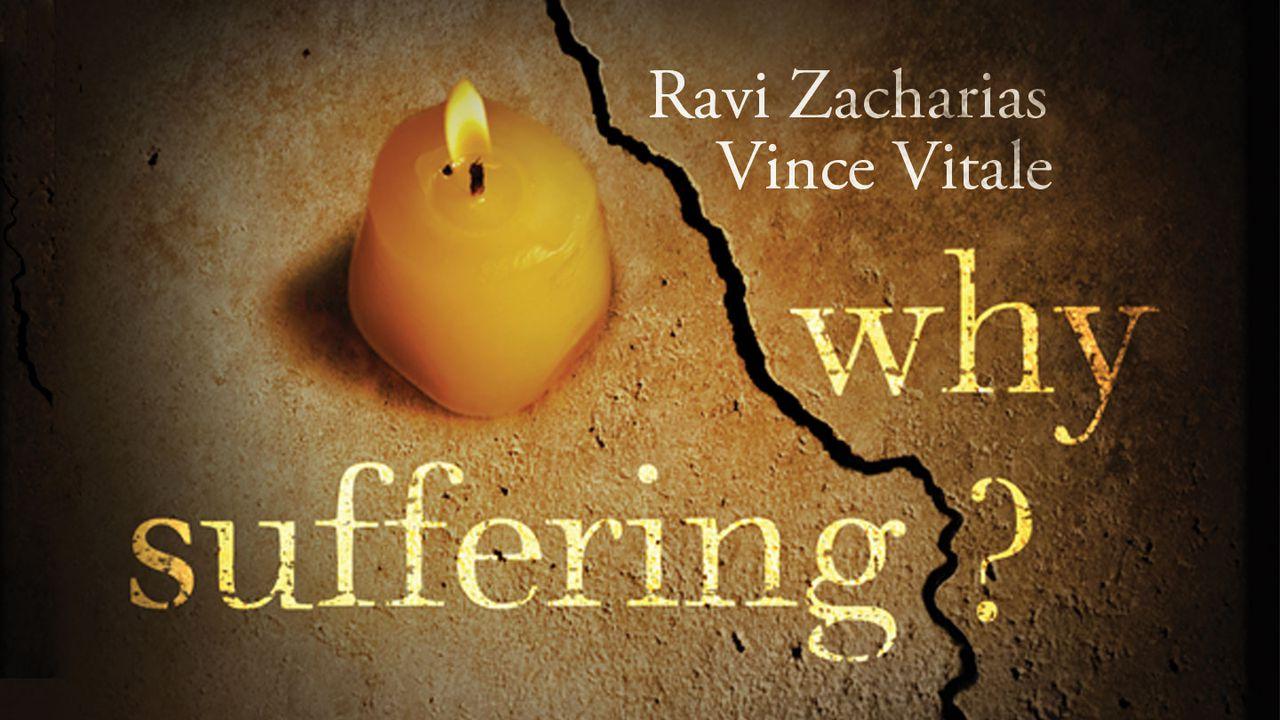Why SufferingSample

Hope Amidst Suffering
Anyone who has had the privilege of viewing Michelangelo’s David in person knows what all the fuss is about. There is something profound about the size and beauty of the sculpture that only firsthand experience can convey. No postcard or documentary can do it justice.
Much of our knowledge is acquired by experience, above and beyond anything that can be known by description or argumentation. And this is even more frequently the case when we start talking about the knowledge relevant to relationships.
Similarly, there are certain things about God’s goodness and about God’s response to suffering that can only be known by inviting God into our suffering and experiencing Him amidst it. This non-propositional knowledge really can be known, but only by experiencing it firsthand.
What we learn about God in the midst of pain and suffering has something to do with the fact that He has suffered with us. By suffering with us and sending His Spirit to live with us through all that we suffer, God ensures that the strongest possible bond we can experience and the deepest possible relationship we can enter into are with Him.
When Jesus’ suffering was at its worst, all of his friends “deserted him and fled” (Matt. 26:56). Suffering’s greatest cruelty is its isolation, which robs us of hope. But the experience of suffering is radically different when someone who loves you is right there with you every step of the way. Something about suffering together gives reason to hope.
When you’re in Christ, you never have to go looking for someone who understands your suffering. You never have to go looking for someone who cares. That someone is always with you, even within you. For we don’t have a God who is distant, but one who has known sorrow (Mark 14:34), one who has wept (John 11:35), and one who “is not far from any one of us” (Acts 17:27).
The meaning in suffering and in God’s response to suffering is largely to be found not in theorizing but in the life of faith, as we identify with the God who suffers with us and for us and with His people who know what it is to live by His side.
No simple answer to Job’s question is recorded in the Bible, and yet at the end of the narrative Job encounters God: “My ears had heard of you but now my eyes have seen you” (Job 42:5). And in that seeing, Job knows a peace that none of his arguing and theorizing could provide.
Christians don’t just claim to know a particular theory about why God allows suffering. They claim to know God Himself—who He is—and that knowledge is a deeper and more intimate knowledge than anything that can be expressed in words alone.
Oftentimes we know God about as intimately as we desire Him. If we desire Him enough to seek not only answers to questions, but His face, then in knowing His face we may find the very answers we seek. And we shouldn’t be surprised that a God who values relationship would see to it that some of the most essential things to know about Him are only knowable by taking a step toward relationship with Him.
Sometimes God is most present when our suffering can make Him seem most absent. Sometimes when we’re in the fog and are unable to see much on our own, we need people by our side to show us where they see God in our lives. Sometimes we mistake God’s respectfulness for absence. Understandably there are times when we want God to be more obvious. But God desires to reveal Himself clearly to those who desire Him, without revealing Himself forcibly to those who don’t. He wants us to follow Him not because He is overpowering, but because we trust Him.
Reflection Questions
- Why is the Christian response to suffering primarily a response of a Person and a response of relationship?
- If we’re serious about evaluating the problem of evil based on all of the relevant evidence, why do we first need to ask whether we have invited God into our suffering, and whether we’re willing to do so?
Bible Verses
- Matthew 26:56
- Mark 14:34
- John 11:35
- Acts 17:27
- Job 42:5
Scripture
About this Plan

This study is based on the book WHY SUFFERING? written by Christian apologist Ravi Zacharias and Vince Vitale, Dean of the Zacharias Institute, It is written for the Christian struggling for an answer, the seeker who thinks suffering disproves God’s existence, and the sufferer who needs a glimpse of a loving God.
More
We would like to thank RZIM for providing this plan. For more information, please visit: https://rzim.org
Related Plans

Moments of Joy

From Charity to Justice: Asking the Questions God Asks

Creative Warriors for the Kingdom

The Desert Road: Trusting God When the Plan Is Unclear

Purpose in Progress

He Is Risen! A Gospel View of the Resurrection

The Miracles of Jesus

From Wilderness to Resurrection - Lent With Hope 103.2

The Hands of a Woman 🌸
